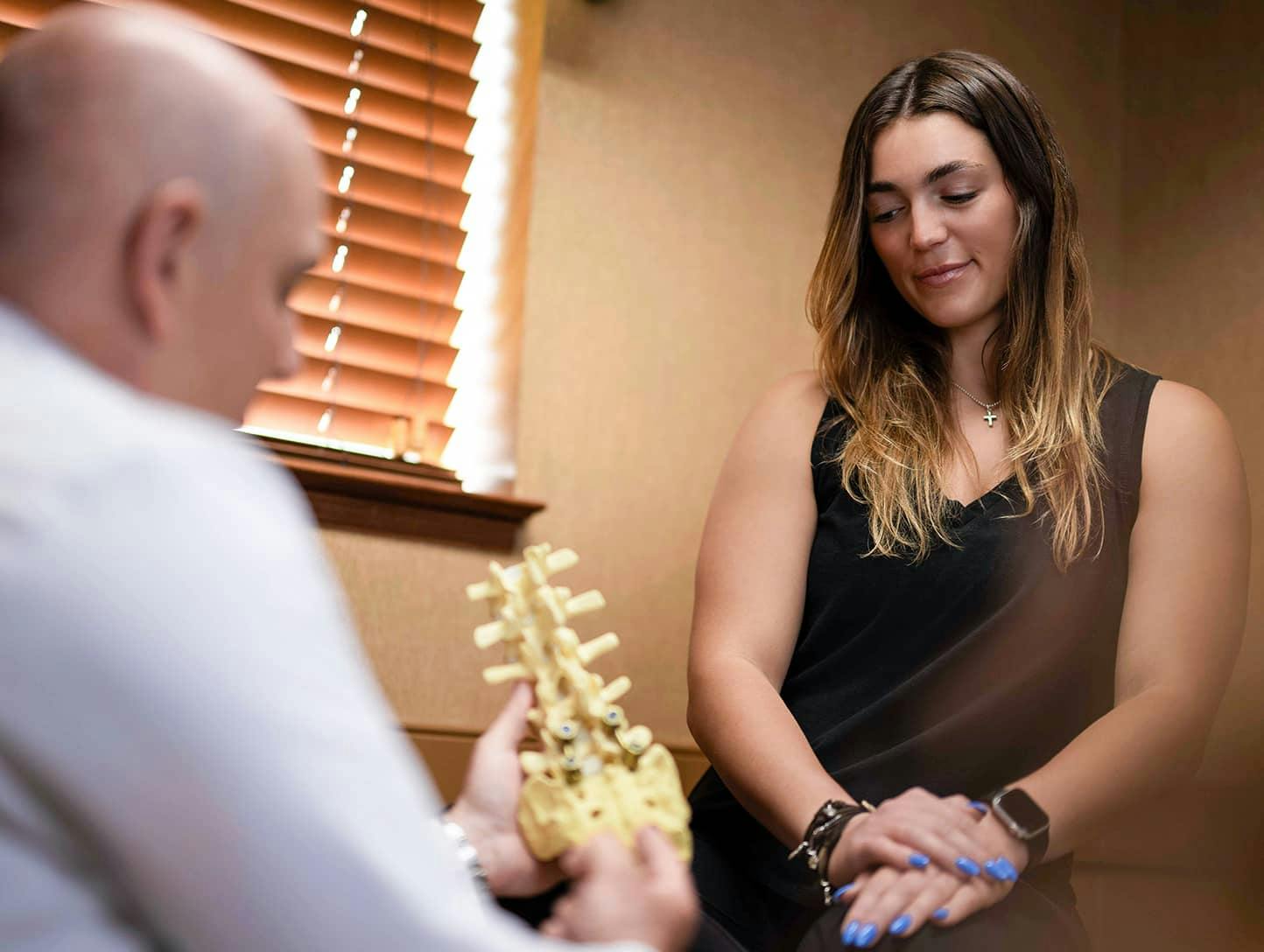Chronic back pain can be debilitating, affecting daily life and productivity. The Center for the Functional Restoration of the Spine specializes in comprehensive solutions, offering personalized treatment plans to address the root causes of back pain and improve overall spinal function.
Back Pain Q & A
What's causing my back pain?
What treatments are available for back pain?
What kind of surgery might I need for back pain?
What's causing my back pain?
Back pain can sometimes be a symptom of an internal disease, but more often than not, it's a result of damage to your musculoskeletal structures. Common examples include strained muscles, pinched nerves, and problems with the discs that provide cushioning between your vertebrae. These injuries are often due to overexertion, lifting without using the right technique, awkward movements, falls, and sports injuries. Chronic back pain frequently arises from disorders such as:
- Spinal stenosis
- Degenerative disc disease
- Facet joint syndrome
- Osteoarthritis
- Herniated discs
- Sciatica (lumbar radiculopathy)
- Cervical radiculopathy
- Scoliosis
- Spondylosis
- Vertebral compression fractures
- Kyphosis
To diagnose the cause of your back pain, your provider at the Center for the Functional Restoration of the Spine performs a comprehensive physical examination and review of your medical history and symptoms. They might order diagnostic tests such as X-rays, CT or MRI scans, a bone scan, discogram, or myelogram, and nerve conduction velocity (NCV) tests along with an electromyogram.
What treatments are available for back pain?
The Center for the Functional Restoration of the Spine team uses conservative treatments for most patients with back pain. Physical therapy, anti-inflammatory medication, and approaches like acupuncture are often very effective in reducing pain and improving function. For patients whose back pain doesn't improve after a course of conservative treatment, there are further measures that can help. These could include:
- Epidural steroid injections
- IDET (intradiscal electrothermal therapy)
- Percutaneous disc nucleoplasty
- Spinal cord stimulation
- Vertebroplasty or kyphoplasty
When your condition isn't responding to any other approaches or in cases where the cause of your back pain isn't treatable using other means, surgery might be necessary.
What kind of surgery might I need for back pain?
The expert team at the Center for the Functional Restoration of the Spine use minimally invasive spine surgery (MISS) techniques and robotic surgery wherever possible to reduce tissue damage. These methods have significant benefits for patients as they cause less pain, bleeding, and scarring, and wounds heal much more quickly. Some of the surgeries for back pain that the team performs regularly include:
- Microdiscectomy
- Artificial disc replacement
- Laminotomy
- Anterior lumbar interbody fusion (ALIF)
- Transforaminal lumbar interbody fusion (TLIF)
- Extreme lateral interbody fusion (XLIF)
- Endoscopic decompression
- Dekompressor discectomy
If you have back pain that's severe, disabling, or isn't responding to simple self-care measures, the Center for the Functional Restoration of the Spine team can help. Call the office or schedule a consultation online today.







